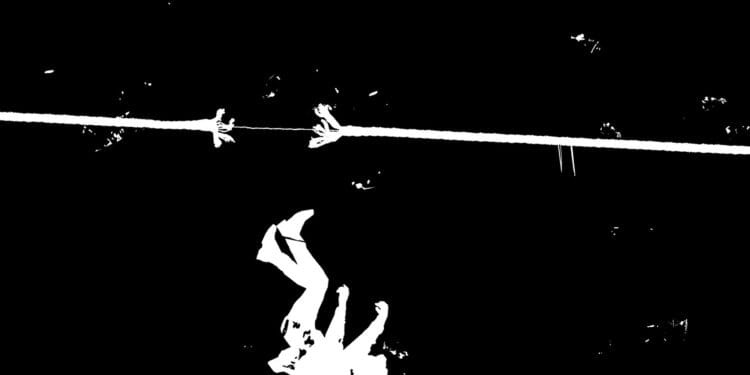A series of rapid political responses, Cutting the Tightrope: the divorce of Politics from Art brings together award-winning playwrights with radically different voices to form an urgent response to the creeping repression of the arts. It is an urgent and immediate reaction to widespread political unrest and a news agenda that brings with it uncertainty as well as fear. With the Arts Council England’s guidance that political statements made by individuals linked to an organisation can cause reputational risks, Cutting The Tightrope: The divorce of Politics from Art is a timely and necessary look at how these ongoing threats to freedoms are influencing our lives.
The collection of short plays brings together UK-based writers from activists to comedians, Russian to Iraqi heritage, Jewish to Muslim background with a guttural reaction to the politics of today. Although the playwrights’ names are advertised, who wrote which play will remain unknown so the artists feel there can be freedom of expression without fear. It includes work from Hassan Abdulrazzak (Sea Things, Southwark Playhouse; Ragedom, Central School of Speech and Drama), Mojisola Adebayo (Stars, Northern Stage; Family Tree, GDIF), Philip Arditti (Burnt at the Stake, or The Whole of the Truth, Shakespeare’s Globe; English Kings Killing Foreigners, Camden People’s Theatre), Sonali Bhattacharyya (Chasing Hares, Young Vic; Two Billion Beats, Orange Tree Theatre), and Ahmed Masoud (Vanished – The Mysterious Disappearance of Mustafa Ouda; The Shroud Maker, London).
They are joined by Nina Bowers (Values, Mantis; Camden People’s Theatre), Roxy Cook (A Woman Walks Into a Bank, Theatre503; Around the World in 80 Days, workshop), Ed Edwards (England & Son, Edinburgh Fringe and Manchester HOME; The Political History of Smack and Crack, Edinburgh Fringe and Soho Theatre) and Afsaneh Gray (The Other Woman, Audible; The Border, Theatre Centre).
Completing the line-up are Dawn King (The Trials, Donmar Warehouse; Foxfinder, West End), Nina Segal (The Good Person of Szechwan, The Lyric; Shooting Hedda Gabler, Rose Theatre), and Sami Abu Wardeh.
Following the ACE policy update, which was eventually reversed under industry pressure, there have been real-world consequences and increasing evidence of the arts being under threat of censorship. The words “reputational risk” were used by the Communities Secretary, Michael Gove, who promptly denied funding to an inter-faith organization, owing to their partnership with the Muslim Council of Britain; the withdrawal of pieces from Unravel at the Barbican Centre; and HOME mcr cancelled an event on the basis of political neutrality. This collection of vital and confronting short plays is written within the context of this incendiary moment in the arts
Director Cressida Brown comments, In 2015, during the last Gaza conflict, I put on a series of plays called Walking the Tightrope: the tension between art and politics. Now 10 years later, the strangled Arts Council has now deemed it acceptable to openly broadcast the strangulation of artists – or indeed any arts organisation’s employee – by warning against making ‘political statements’ and advocating neutrality. So, I am yet again responding to this the only way I know how: with plays. Let these playwrights speak for themselves. To be honest the strangled arts council weren’t telling us anything we didn’t already know.
This rapid response event is created by the creative team behind Walking the Tightrope: the tension between Art and Politics, a collection of plays by playwrights including Caryl Churchill, Hannah Khalil, Gbolahan Obisesan, Mark Ravenhill, Timberlake Wertenbaker; which featured on Radio 4’s Today Programme and Front Row, and was New York Times and The Scotsman’s Pick of the Fringe before transferring to the Houses of Parliament.
There will be post-show panel discussions with guest speakers from activism, journalism, politics, and the arts who will dissect a different, related topic after each performance including Censorship around the world: lessons we can learn in the UK and Palestine: how Middle East politics plays out/or not on our stages.
More information can be found here



















